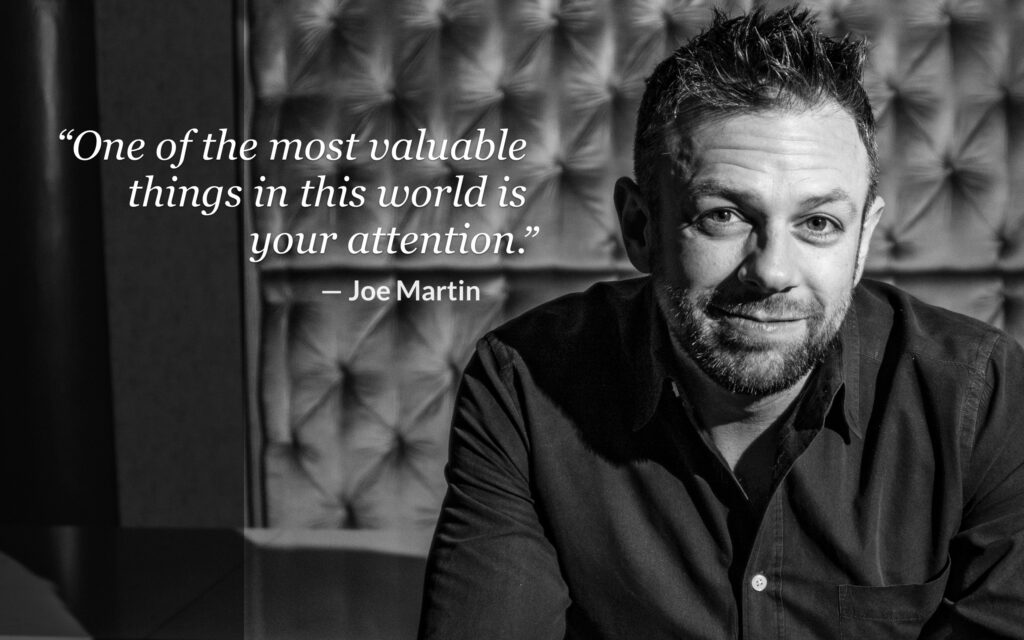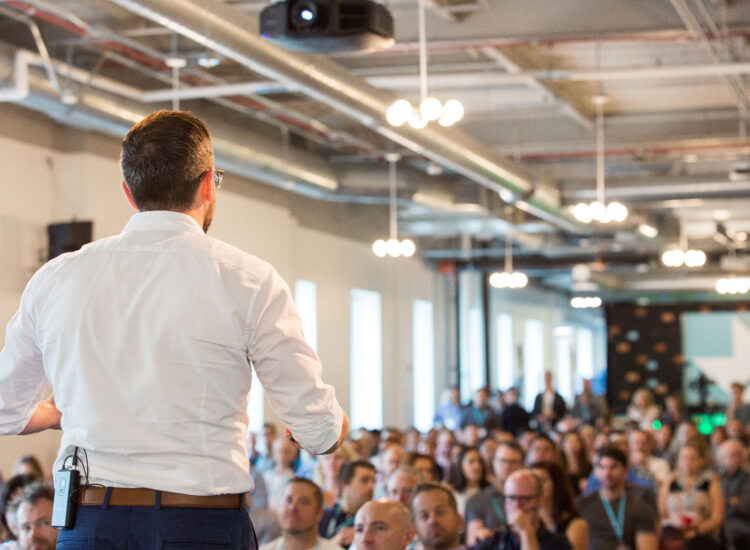“attention is very powerful in the human mind. […] everyone around the world is hunting the attention of others all the time.” — Don Miguel Ruiz, The Mastery of Love
Without someone’s attention, it becomes nearly impossible to share knowledge or new concepts effectively. Similarly, our own ability to absorb new information relies heavily on our attention to detail.
A scattered mind is a barrier to growth, preventing us from fully exploring the world around us. By recognizing the importance of attention, we can open ourselves up to new levels of happiness.
Your Attention Is Limited
Unlike money or material possessions, attention is a finite resource. You only have so much of it to give each day. If you’re not mindful of where your attention is going, it’s easy for others to snatch it away without your permission.
Your ability to give attention is closely linked the number of decision making units (DMUs) you possess in a day. After a good night’s sleep, you start the day with 100 decision making units.
Figuring out what to eat for breakfast, what to wear, what to listen to — all of these slowly chip away at the number of decision making units you have available.
This is why we hear about people wearing the same clothes every day, cutting down on the number of DMUs they need to exhaust.
And the workday, oh man, the workday is a DMU blackhole.
So.
Many.
Decisions.
This is what creates your “I don’t care what we eat for dinner” mindset. You’ve spent your DMUs and it’s hard to create more.
That’s why it’s essential to be intentional about who and what you’re giving your attention to.
“A True man belongs to no other time or place.” — Ralph Waldo Emerson, Self Reliance
Companies Will Do Anything to Get It
It’s infuriating how far some companies will go just to grab our attention. It is estimated that a person will come into contact with 6,000 to 10,000 ads every single day.

Rather than creating quality content that naturally draws people in, they resort to tactics that thrive on clickbait headlines and pop-up ads that never seem to go away. They don’t care about providing value or building a genuine connection with potential customers, they’re just after a quick sale.
There’s a simple sales equation commonly followed called a conversion rating.
Number of People Who Took An Action (a click, a form, a purchase)
÷
Number of People Who Interacted with That Specific Piece of Content
= Your Conversion Rating
If a company can get 1,000 people to look at an ad and one of them turns into a customer, they have a .1% (.001) conversion rate. This number is then multiplied and factored into a very simple equation.
To acquire 10 new customers, simply increase the number of people who see your ad to 10,000.
Want 100 new customers? Steal the attention of 100,000 people. It’s this blatant disregard for the other 999,990 people that results in attention pollution.
Attention pollution is the act of deliberately wasting the attention of people who are not the right fit for a company’s services.
Your Attention is Monetized
These tactics are deployed because companies profit off of your attention.
The more time you spend on their site, watching their show, or engaging with their brand, the more valuable you become because you gave them something irreplaceable — your attention.
Storytelling has always been a powerful way to convey messages and capture people’s attention (note that your attention needs to be “captured”).
However, the reasons behind why we tell stories has shifted in the wrong direction. Instead of telling stories for the sake of sharing valuable experiences and insights, we are now more focused on the currency that social media has created.
It’s what every Tik-Toker strives for.
It’s what the streaming wars are fought over.
It’s why DB Weiss and David Benioff thought they could write their own ending to Game of Thrones.
They want to profit off of your attention.

Companies race to grab the attention of new customers at any cost. This often results in a disregard for the long-term impact of their tactics.
The pressure to meet revenue targets leads to businesses prioritizing marketing over customer experience. While this normally means selling your personal data to advertisers or using it to tailor ads specifically to you, companies are finding more ways to secure your attention with no regard for how it impacts the individual or society.
Which is why it’s on you.
It’s on you to be crucially aware of how your attention is being distributed and to set boundaries accordingly.
Protecting Your Attention Requires Boundaries
So, how can you protect your attention from being taken advantage of? For you it means setting boundaries. For companies, it means being more intentional with their messaging and moving past the archaic formulas of widespread exposure.
Some ways you can be more mindful about your attention:
- Limit time on social media
- Prioritize time outside or connecting with friends instead of streaming services
- Saying no to unnecessary commitments
Ways companies can stop being attention mongers:
- Provide employees with a predictable workday that doesn’t require as many DMUs
- Identify their One Target Customer™ and focus efforts on acquiring those types of customers
- Understand the real value they provide, instead of guessing.
By being intentional about where and how you’re giving your attention, you can conserve your DMUs for family, friends, or get this….maybe even yourself.
Your Attention is a Powerful Tool

In a world that’s constantly vying for our attention, it’s essential to recognize its value and protect it accordingly.
Your attention is yours and yours alone. Don’t let anyone take it from you.
It’s a powerful tool that can be used for good, whether that’s supporting a cause you believe in or choosing to check in on the people you care about.
When you prioritize your attention, you take control of your life. It’s a choice to loosen the control external forces have over your happiness.
It’s an empowering feeling I encourage you to embrace.



